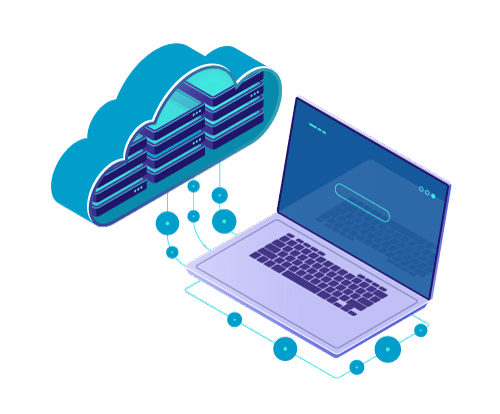Before selecting if a new product or service will fulfil your needs, it’s critical to understand how it operates. Hosting is no exception. To guarantee that you make the best decision, you must have a fundamental understanding of how the various technologies work.
In this essay, we’ll go through the fundamental features to assist you to make informed selections regarding your web hosting options, particularly Cloud VPS.
What is a VPS?
Let’s begin by looking at a virtual private server (VPS) and how it functions. A virtual private server, or VPS, is a server-based virtual machine (VM). A virtual machine is a computer system that exists only in the mind of another physical computer. Computers are built to supply operating systems with resources such as storage, RAM, and the CPU. As computers became more powerful and bigger amounts of RAM and disc were accessible, software was developed to simulate a genuine computer using chunks of the RAM, disc, and processor so that a conventional operating system could be run.
A hypervisor is a piece of software that manages the operation of virtual computers on a computer. A hypervisor divides the RAM on the computer and coordinates the CPU execution of the numerous virtual machine software.
As the concept of virtual private servers gained traction, CPU designers began to integrate capabilities to improve virtual machines, allowing them to function at considerably higher speeds. Because of this better performance, as well as the power efficiency of current computers, many old systems may now be virtualized onto fewer new ones, lowering many firms’ electricity bills.
To distinguish between the physical and virtual computers, the physical computer is referred to as a host, and the virtual machines that run on it are referred to as guests. One of the virtual machines’ drawbacks is that they rely on the host computer to function, and if the host goes down, all of the guest computers go down with it. The Cloud VPS concept was created to allow Virtual Private Servers to function without this restriction.
What is Cloud VPS?
At its most basic level, a VPS Cloud is made up of a group of computers that work together to serve as hosts for a large number of virtual machines. The hypervisor software is installed on some computers, and they are in charge of delivering CPU and RAM resources to the guests. Other computers, known as SANs, store the data of the numerous guests. Another computer oversees the entire cloud, allocating hypervisors to operate virtual machines, specifying their discs on storage SANs, and ensuring that virtual machines are linked to their necessary data.
Hardware breakdowns are one of the most common causes of server downtime. Long downtime is avoided by separating the storage of a virtual machine from the host. If a hypervisor server fails due to hardware failure, the guest virtual machines can be relocated to another hypervisor server to continue operating. Similarly, redundancy for the storage and control servers ensures that the cloud will not be disrupted by a single hardware failure and that the data for the guest virtual machines is protected.
When it comes to management, a Cloud VPS is very similar to a dedicated server when in use. Both Cloud VPS and dedicated servers appear to the operating system to be the same. As a result, most guidelines and tutorials for configuring a dedicated server are also applicable to VPS configuration.
When running an operating system, the benefits of a Cloud VPS are transparent, but they also give customers with other features like as hardware failure resilience, which might result in extended downtime. Cloud VPS also allows you to expand your VPS by adding or decreasing the resources you designate to fulfil all of your needs.
Feel free to visit our Casbay Global Blog and Knowledge Base for more information about web hosting.




